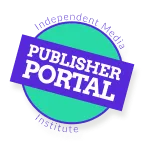
Michael Hudson
Michael Hudson is an American economist, a professor of economics at the University of Missouri–Kansas City, and a researcher at the Levy Economics Institute at Bard College. He is a former Wall Street analyst, political consultant, commentator, and journalist.
Released for Syndication:
03/06/2025
The late 19th century saw economists, mainly German and Austrian, create a mythology of money’s origins that is still repeated in today’s textbooks. Money is said to have originated as just another commodity being bartered, with metal preferred because it is nonperishable (and hence amenable...
Released for Syndication:
03/04/2025
Archaeologist and scholar Giorgio Buccellati’s book At the Origins of Politics describes how Mesopotamia’s urban revolution in the late fourth millennium BC shaped a new mentality. The segmentation and specialization of industrial production required written recordkeeping, standardization of weights and measures, and surveying and allocation of...
Released for Syndication:
06/06/2024
Roman land tenure was based increasingly on the appropriation of conquered territory, which was declared public land, the ager publicus populi. The normal practice was to settle war veterans on it, but the wealthiest and most aggressive families grabbed such land for themselves in violation...
Released for Syndication:
05/29/2024
Why were Clean Slates so important to Bronze Age societies? From the third millennium in Mesopotamia, people were aware that debt pressures, if left to accumulate unchecked, would distort normal fiscal and landholding patterns to the detriment of the community. They perceived that debts grow...
Released for Syndication:
05/21/2024
If a colloquium on early entrepreneurs had been convened in the early 20th century, most participants would have viewed traders as operating on their own, bartering at prices that settled at a market equilibrium established spontaneously in response to fluctuating supply and demand. According to...
Released for Syndication:
05/14/2024
There are multiple differences between antiquity’s economic practices and those of the modern world, and these should be borne in mind when considering the changing context for enterprise through the centuries. Whereas modern business largely operates on credit, in archaic and classical times handicraft workshops...
Released for Syndication:
05/09/2024
A discussion of the origins of urbanization may provide some insight into the character of modern social problems by highlighting the long historical dynamic at work. It may not be out of place here to point out that anti‑states are well known in the modern...
Released for Syndication:
04/15/2024
Traditional societies usually had restrictions to prevent self-support land from being alienated outside of the family or clan. By holding that the essence of private property is its ability to be sold or forfeited irreversibly, Roman law removed the archaic checks to foreclosure that prevented...
Released for Syndication:
04/05/2024
The papacy’s role as organizer of the Crusades empowered it to ask for—indeed, to demand—tithes from churches and royal tax assessments from realms ruled by the warlord dynasties it had installed and protected. England’s nobility and clergy pressed for parliamentary reform to block King John...
Released for Syndication:
03/08/2024
When interest-bearing commercial and agrarian debt came to be incorporated into civilization’s economic structure in the third millennium BC, it was accompanied by clean slates that liberated bondservants and restored to debtors the rights to the crops and land that creditors had taken. By the...